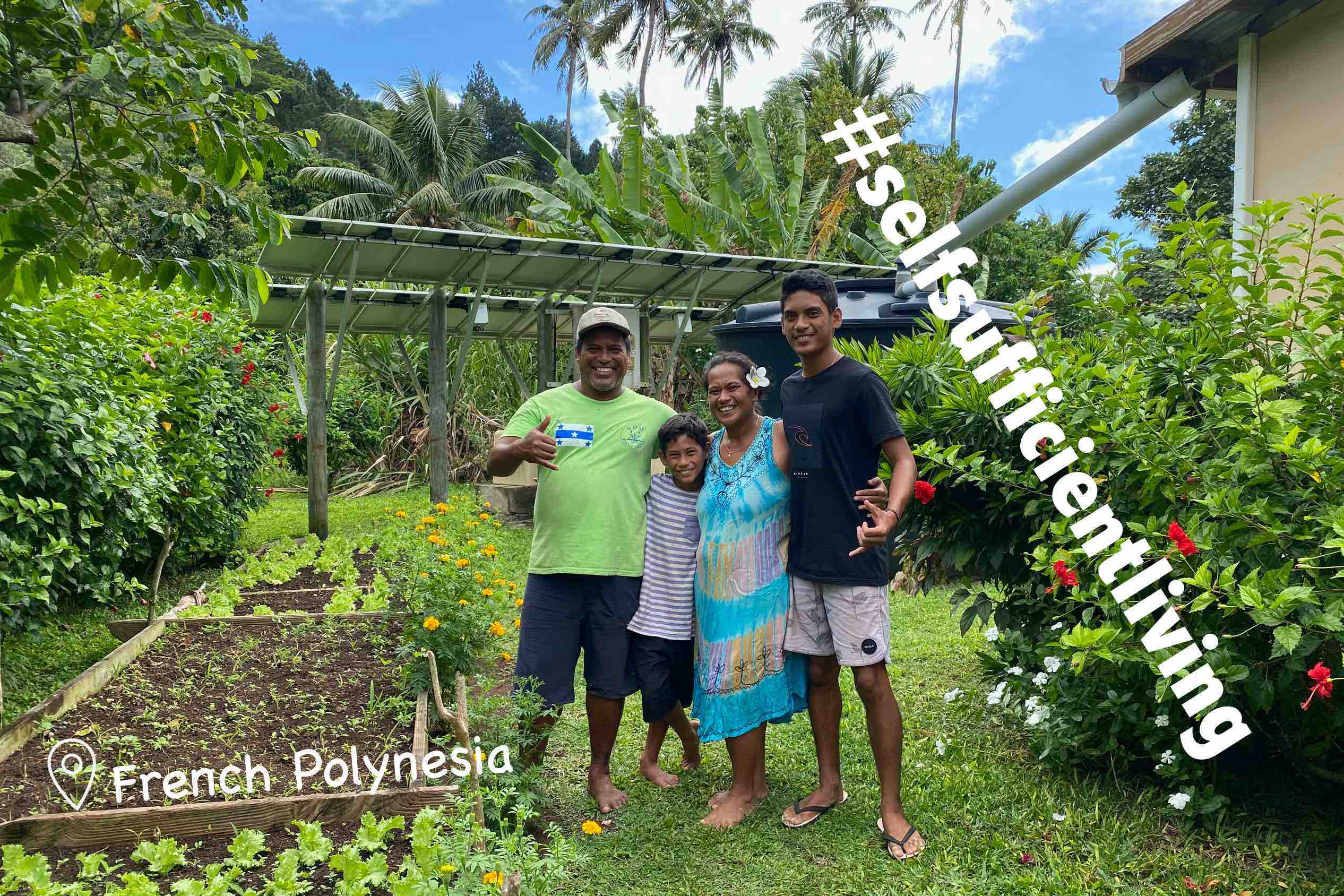Gifts for off grid living – Gifts for off-grid living are more than just presents; they’re investments in self-sufficiency and resilience. This guide explores a range of practical and thoughtful gift ideas, from essential cooking tools and water purification systems to sustainable energy solutions and safety equipment. Whether you’re equipping a seasoned off-grider or helping a friend embrace a simpler lifestyle, this curated selection offers something for everyone seeking independence from the grid.
From durable cookware designed for campfire cooking to reliable solar lighting options and ingenious methods for food preservation, we delve into the crucial elements that make off-grid living not only possible but also comfortable and safe. We’ll cover everything from practical tools for repairs and maintenance to unique gifts that cater to the specific needs and desires of the off-grid enthusiast.
This comprehensive guide ensures you find the perfect gift to support someone’s journey toward self-reliance.
Practical Gifts for Off-Grid Cooking & Food Preservation: Gifts For Off Grid Living
Embarking on an off-grid lifestyle requires resourceful planning, especially concerning food preparation and storage. Investing in durable and versatile kitchen tools, and mastering effective food preservation techniques, are crucial for successful off-grid living. This guide highlights essential equipment and methods to ensure a consistent and nutritious food supply.
Essential Off-Grid Kitchen Tools
Selecting the right tools for off-grid cooking prioritizes durability, versatility, and ease of cleaning. These characteristics are paramount given the limitations of off-grid environments. The following table details five indispensable items.
| Tool | Features | Benefits | Material Considerations |
|---|---|---|---|
| Dutch Oven | Heavy-duty cast iron, lid for baking and searing, oven-safe | Versatile for baking, frying, stewing, and boiling; excellent heat retention | Cast iron for superior heat distribution and durability; seasoned for easy cleaning and rust prevention. |
| Cast Iron Skillet | Durable, even heat distribution, can be used on open fire or stovetop | Suitable for frying, searing, and baking; easy to clean and maintain | Cast iron for longevity and heat retention; proper seasoning crucial for preventing rust. |
| Folding Camp Stove | Compact, lightweight, efficient fuel consumption | Portable for cooking outdoors; efficient use of fuel | Stainless steel or aluminum for lightweight durability; consider butane or propane fuel options. |
| Mortar and Pestle | Stone or hardwood; sturdy construction | Grinding spices, herbs, and grains; preparing pastes and sauces | Hardwood or granite for durability and ease of cleaning. |
| Chef’s Knife | High-carbon steel blade, comfortable handle | Essential for food preparation; versatile for chopping, slicing, and dicing | High-carbon steel for sharpness and durability; ergonomic handle for comfortable use. |
Food Preservation Methods Without Refrigeration
Reliable food preservation is critical for off-grid living. These techniques extend the shelf life of food without relying on electricity.Proper food preservation minimizes waste and ensures a consistent food supply. These three methods are highly effective in off-grid situations.
- Canning:
- Process: Food is heated to a high temperature, killing microorganisms, and then sealed in airtight jars.
- Equipment: Pressure canner, jars, lids, rings, jar lifter.
- Dehydration:
- Process: Removing moisture from food inhibits microbial growth, extending its shelf life.
- Equipment: Dehydrator (electric or solar), mesh trays.
- Fermentation:
- Process: Beneficial bacteria convert sugars into lactic acid, preserving the food and adding unique flavors.
- Equipment: Clean jars, fermentation weights (optional).
Off-Grid Weekly Meal Plan
This sample meal plan focuses on simple, easily-preserved ingredients and minimal cooking time.This plan prioritizes ingredients that can be easily preserved using the methods described above and requires minimal cooking time and equipment.
- Monday: Bean and vegetable stew (canned beans, dehydrated vegetables).
- Tuesday: Oatmeal with dried fruit and nuts.
- Wednesday: Fermented vegetables (sauerkraut or kimchi) with whole-wheat bread.
- Thursday: Lentil soup (dried lentils, canned tomatoes).
- Friday: Dehydrated potato and onion hash with eggs.
- Saturday: Baked beans (canned beans, spices).
- Sunday: Rice and beans (dried rice, canned beans).
Gifts Enhancing Off-Grid Comfort & Safety

Creating a comfortable and safe off-grid living space requires careful consideration of several key elements. These elements contribute significantly to overall well-being, reducing stress and improving the quality of life in a more challenging environment. Prioritizing comfort and safety is not a luxury, but a necessity for successful off-grid living.
Essential Elements for Off-Grid Comfort and Safety
Three key elements contribute significantly to a comfortable and safe off-grid home: adequate insulation, reliable lighting, and a secure water supply. Proper insulation helps maintain a comfortable internal temperature, regardless of external conditions, reducing energy consumption and improving living comfort. Reliable lighting, particularly in the evenings, enhances safety and allows for productivity and leisure activities. A clean and readily available water source ensures good hygiene and prevents waterborne illnesses, vital for health and well-being.
These three factors are interconnected; for instance, efficient insulation reduces the energy needed for lighting and water heating.
For descriptions on additional topics like solar panels for off the grid living, please visit the available solar panels for off the grid living.
Off-Grid Heating Methods: Efficiency and Safety
Choosing the right heating system is crucial for off-grid living, balancing efficiency with safety and environmental impact. Several options exist, each with its own advantages and drawbacks.
| Heating Method | Efficiency | Safety | Environmental Impact |
|---|---|---|---|
| Wood-burning stove | High (if properly managed) | Moderate (risk of fire, carbon monoxide) | Moderate (carbon emissions, deforestation) |
| Propane heater | High | High (if properly ventilated) | Low (cleaner burning than wood) |
| Solar heating | Moderate (dependent on sunlight) | High | Very Low |
| Geothermal heating | High | High | Very Low |
Crucial Safety Items for Off-Grid Living
Having a well-stocked emergency kit is paramount for off-grid living. These items can mean the difference between a minor inconvenience and a serious emergency.
- First-aid kit: A comprehensive kit containing bandages, antiseptic wipes, pain relievers, and any personal medications is essential for treating minor injuries and illnesses. Proper usage involves knowing basic first-aid techniques and regularly checking the kit’s contents for expiry dates.
- Fire extinguisher: A multi-purpose fire extinguisher (ABC type) is crucial for quickly addressing small fires before they escalate. Proper usage involves knowing how to operate the extinguisher and aiming at the base of the flames.
- Emergency radio: A hand-crank or battery-powered radio allows access to weather alerts and emergency broadcasts, vital for staying informed during severe weather events. Regularly test the radio’s functionality and keep extra batteries on hand.
- Water filter/purifier: Access to clean drinking water is critical. A reliable water filter or purifier ensures safe drinking water, even in emergency situations. Follow the manufacturer’s instructions for proper usage and maintenance.
- Multi-tool/knife: A high-quality multi-tool or knife is invaluable for a wide range of tasks, from repairs to food preparation. Proper usage involves safe handling and regular sharpening to maintain its effectiveness.
Gifts Promoting Sustainability & Self-Sufficiency
Embracing self-sufficiency in an off-grid lifestyle necessitates thoughtful choices regarding waste management, food production, and energy generation. Sustainable practices are not merely eco-conscious; they are essential for long-term survival and comfort in a remote environment. The following suggestions highlight practical gifts that support these crucial aspects of off-grid living.
Building a Simple Compost System
A well-maintained compost system is vital for off-grid waste management, reducing landfill contributions and providing nutrient-rich soil amendment for gardening. A basic three-bin system offers an effective and manageable solution. The first bin houses fresh organic waste; the second holds composting material; the third contains finished compost ready for use.Imagine three wooden bins, each approximately 3ft x 3ft x 3ft, placed side-by-side.
The first bin receives kitchen scraps, yard waste, and other biodegradable materials. As this bin fills, the contents are moved to the second bin, where the composting process takes place through natural decomposition aided by regular turning. Once the material in the second bin has fully composted (typically 6-12 months depending on climate and materials), the finished compost is transferred to the third bin for use in the garden.
The empty first bin then begins the cycle anew. This system allows for continuous composting without interruption.
Gardening in an Off-Grid Setting
Off-grid gardening provides a reliable source of fresh, healthy food, reducing reliance on external supplies. Selecting vegetables that thrive with minimal intervention is crucial. The following table details three easy-to-grow options ideal for off-grid environments.
| Vegetable | Growing Requirements | Harvest Time |
|---|---|---|
| Potatoes | Loose, well-drained soil; ample sunlight; regular watering (especially during flowering and tuber development); protection from frost. | 3-4 months after planting |
| Leafy Greens (e.g., Kale, Spinach) | Well-drained soil; partial shade; regular watering; consistent moisture; protection from extreme heat. | Continuous harvest, beginning 4-6 weeks after planting. |
| Beans (Bush Beans) | Well-drained soil; ample sunlight; regular watering; support structure not required for bush varieties. | 50-70 days after planting, depending on variety. |
Creating a Sustainable Energy Solution
Harnessing renewable resources for energy is paramount in off-grid living. A simple solar panel system offers a viable solution. This involves several components: solar panels to convert sunlight into electricity, a charge controller to regulate the flow of electricity to the battery bank, a battery bank to store energy for nighttime use, and an inverter to convert DC power from the battery bank to AC power for household appliances.Consider a system comprising three 100-watt solar panels, a 30-amp charge controller, a 12-volt battery bank with sufficient capacity (depending on energy needs), and a 12-volt to 120-volt inverter.
The panels are mounted on a south-facing surface (in the Northern Hemisphere) to maximize sunlight exposure. Wiring connects the panels to the charge controller, which then connects to the battery bank. The inverter draws power from the battery bank to provide AC power for lights, small appliances, and other devices. This system’s size can be scaled up or down depending on power requirements.
Proper installation and safety precautions are essential. Professional assistance is recommended for complex systems.
Unique & Thoughtful Gifts for the Off-Grid Enthusiast
Embracing an off-grid lifestyle requires resourcefulness and resilience. Beyond the essential tools, thoughtful gifts can significantly enhance the experience, adding comfort, convenience, and a touch of luxury to self-sufficient living. These unique presents cater to the specific needs and desires of the off-grid enthusiast, offering practical solutions and a welcome boost to their independent existence.
Five Unique Gift Ideas for Off-Grid Living, Gifts for off grid living
Choosing the perfect gift for an off-grider often involves considering their specific needs and preferences. The following selection represents a range of practical and thoughtful options that go beyond the standard survival gear.
| Gift | Description | Price Range | Where to Find |
|---|---|---|---|
| High-Quality Water Filter | A robust, multi-stage water filter capable of removing bacteria, viruses, and other contaminants from various water sources. Look for models with high flow rates and replaceable filters for long-term use. Essential for reliable access to clean drinking water. | $100 – $300 | Outdoor gear retailers, online specialty stores |
| Solar-Powered Power Station | A portable power station with solar charging capabilities provides backup power for essential electronics, lighting, and small appliances. Choose a model with a sufficient capacity (measured in watt-hours) to meet their energy needs. | $200 – $800 | Electronics retailers, online marketplaces |
| Hand-Cranked Meat Grinder | A durable, hand-cranked meat grinder allows for processing meat from hunted game or livestock without reliance on electricity. This is a valuable tool for food preservation and self-sufficiency. | $50 – $150 | Farm supply stores, online retailers |
| High-Quality Camp Oven | A cast iron or stainless steel camp oven offers versatile cooking options over an open fire or coals. These ovens can bake, roast, and stew, providing a wider range of culinary possibilities in an off-grid setting. | $75 – $250 | Outdoor cooking supply stores, online retailers |
| Lightweight, Foldable Sawmill | A portable sawmill allows for processing timber on-site, providing lumber for construction projects or fuel for a wood-burning stove. Choose a model that is lightweight and easy to transport. | $300 – $1000 | Specialty woodworking tool suppliers, online marketplaces |
Off-Grid First-Aid Kit Essentials
A comprehensive first-aid kit is crucial for off-grid living, where access to immediate medical care might be limited. A high-quality kit should be well-organized, durable, and stocked with supplies for a range of potential emergencies.The kit should be housed in a waterproof, impact-resistant container, ideally with compartments for easy access and organization. Contents should include:* Wound Care: Sterile gauze pads, bandages of various sizes, antiseptic wipes, antibiotic ointment, medical tape, trauma shears.
Pain Relief
Over-the-counter pain relievers (ibuprofen, acetaminophen), topical pain relief cream.
Infection Prevention
Antiseptic solution, antibiotic ointment, iodine tablets for water purification.
Emergency Supplies
Tweezers, safety pins, blister treatment, CPR mask, whistle, emergency blanket.
Other Essentials
Sunscreen, insect repellent, anti-diarrheal medication, rehydration salts.The kit should be regularly inspected and replenished to ensure all items are present and in good condition. Consider including a detailed first-aid manual or accessing online resources for proper treatment techniques. Regular practice with the kit’s contents will increase confidence and preparedness in handling various medical situations.
Embarking on an off-grid lifestyle requires careful planning and the right equipment. Choosing gifts that enhance both practicality and comfort is key to supporting someone’s transition to self-sufficiency. This guide has highlighted a diverse selection of options, from essential tools and sustainable solutions to unique and thoughtful presents that celebrate the spirit of independent living. By understanding the specific needs of off-grid living, you can select gifts that not only provide immediate utility but also contribute to a more sustainable and fulfilling lifestyle.



